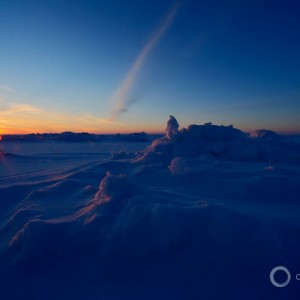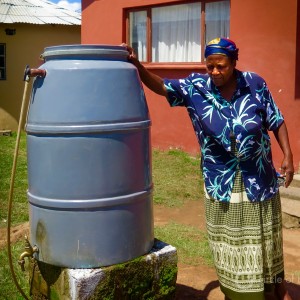The Stream, February 12: Nepal Communities Still Struggle for Water After 2015 Earthquake
The Global Rundown
Communities affected by a major earthquake in Nepal last year are still struggling to secure adequate water supplies. Scientists worry that the Zika virus is just the first of many diseases that could be helped by a changing climate, and a new study suggests that sea level rise is being slowed by continents absorbing large quantities of water. Floods in the United Kingdom this winter created a huge amount of household waste that is now destined for landfills. South Korea cut electricity and water supplies to an industrial park it shared with North Korea, and Zambia told mining companies that they should expect higher electricity prices as a drought continues to curb hydropower. An investigation into the Gold King mine disaster in Colorado revealed that government officials knew of the risk of wastewater spilling from the mine.
“Zika is the kind of thing we’ve been ranting about for 20 years.” –Daniel Brooks, a parasitologist at the University of Nebraska-Lincoln, on concerns that the spread of the mosquito-borne virus is being aided by climate change. Warmer temperatures and changing rainfall patterns could hasten the spread of diseases in the future, according to scientists. (Guardian)
By The Numbers
1 hour Time it takes to fill a 20-liter pot of water in Barkobot, Nepal, where the community’s traditional water supply dried up following the major earthquake that hit Nepal last April. Guardian
30,000 metric tons Damaged household goods that cannot be recycled and need to be thrown away following severe winter floods in the United Kingdom. Press Association
$0.10 per kilowatt-hour New electricity rates for mines in Zambia. Government officials say the increase, a sharp rise in costs for some mines, is necessary as it juggles hydropower shortages and brings new energy sources online. Bloomberg
Science, Studies, And Reports
The Earth’s land has soaked up an additional 3.2 trillion metric tons of water from the sea over the past ten years as some areas become hotter and drier, according to a study published in the journal Science. In doing so, the continents have slowed global sea level rise by 20 percent, the study found. Phys.org
On The Radar
South Korea on Thursday turned off electricity supplies, and therefore water supplies, to an industrial park that it shared with North Korea. The move was in response to recent rocket tests by North Korea, and signals a continuing deterioration of relations between the two countries. Reuters
Officials with the U.S. Environmental Protection Agency knew that there were likely large quantities of water stored in the defunct Gold King mine in Colorado, where an agency cleanup crew triggered a release of toxic wastewater last August. Documents involved in a Congressional investigation of the incident were released Thursday. Associated Press
A news correspondent for Circle of Blue based out of Hawaii. She writes The Stream, Circle of Blue’s daily digest of international water news trends. Her interests include food security, ecology and the Great Lakes.
Contact Codi Kozacek






Leave a Reply
Want to join the discussion?Feel free to contribute!